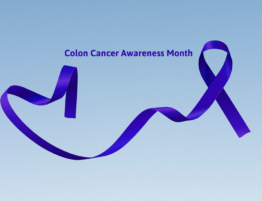
1. Ten Minutes of Exercise Helps Your Heart
Getting just ten minutes of physical activity each day can lower your risk of having a heart attack significantly. Aiming for thirty minutes a day could potentially lower your risk even more.
2. Less Screen Time Is Heart Healthy
If you tend to spend four or more hours per day sitting in front of your TV, computer, laptop or other device, your risk of having a heart attack is almost double. Limit screen time and spend more time on your feet to reduce this risk.
3. Heart Disease Starts Early
Heart disease isn’t something that develops when you’re older. In fact, it starts when you’re a teenager or young adult. Being obese during childhood can make the risk of having heart disease even higher when you become an adult.
4. Stress and Heart Disease Go Hand in Hand
Stress is one of the biggest factors that leads to heart disease. Find ways to reduce stress, such as deep breathing. Learn to keep your anger in check in order to lower your risk of having a heart attack.
5. Heart Disease Is an Ancient Disease
Heart disease is often linked to modern habits, such as sedentary lifestyles and poor diets, but CT scans done on mummies shows that it was around in ancient Egyptian times.
6. More Sleep Is Better for Your Heart
Those who get more sleep each night have a lower risk of heart disease. Women who get less than five hours of sleep, have a 39 percent chance higher of having heart disease.
7. Laughter Protects Your Heart
Laughing is healthy for your blood vessels. It helps them relax and expand, which keeps your heart working properly.
8. Mondays Are the Worst for Heart Attacks
Researchers found that heart attacks tend to occur more often on Monday mornings than at any other time of the week.
9. Heart Disease Fatality Rates Are High
Heart disease fatality rates are around 40 percent, which is higher than deaths associated with all types of cancer. More than 25,000 people in the U.S. die from heart disease every day.
10. Age Is the Biggest Risk Factor
Although heart disease can start when you are young, age is the biggest risk factor. Other risk factors include high blood pressure, high cholesterol, diabetes, smoking and a sedentary lifestyle. Even though you can’t control certain risk factors, such as a family history of heart disease, making healthy lifestyle changes can help reduce your risk overall.



